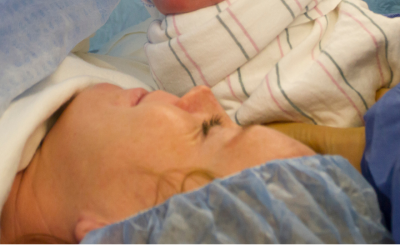
Possible link between genetic changes in women of African ancestry and hypertensive disorders of pregnancy
HMOX1 Genetic Polymorphisms Display Ancestral Diversity and May Be Linked to Hypertensive Disorders in Pregnancy
“Racial disparity” means that a condition may happen more often in a specific racial or ethnic group than in the general population. Previous studies have shown that racial disparities exist in pregnancy and postpartum outcomes, including hypertensive disorders of pregnancy. While systemic and structural racism have been studied and shown to contribute to the disparity in outcomes for Black women, genetic ancestral contributions can also be considered. In this study, researchers asked if a gene (called HMOX1, that encodes a protein called heme oxygenase-1, or “HO-1”) may vary in patients of different ancestries. Other research studies have shown that higher levels of HO-1 are linked with inflammation and poor functioning within the blood vessels of the placenta and other organs. Patients who have higher rates of this protein appear to be at higher risk of cardiovascular disease. Studying the relationship between the HMOX1 gene and HO-1 could provide key insights into why preeclampsia may occur more often in patients of specific ancestry.
Researchers studied DNA samples from over 1,200 individuals from 5 ancestral groups: Africa, the Americas, Europe, East Asia, and South Asia (including samples provided by the Preeclampsia Registry). Results showed that HMOX1 variants (meaning - a permanent change in the DNA sequence that makes up the gene) were more common in African women. This may help to explain one reason why preeclampsia may occur more often in women of African ancestry.
Take home message: In this study, HMOX1 gene variants were different depending on ancestry, and these genetic changes could be contributing to the racial disparity in hypertensive disorders of pregnancy. More work is needed to expand this study and to test if understanding genetic variants can improve the prediction of preeclampsia and/or help to customize health care for those at risk of hypertensive disorders of pregnancy.
Link: https://link.springer.com/article/10.1007/s43032-022-01001-1
Citation: Sun, T., Cruz, G.I., Mousavi, N. et al. HMOX1 Genetic Polymorphisms Display Ancestral Diversity and May Be Linked to Hypertensive Disorders in Pregnancy. Reprod. Sci. (2022). https://doi.org/10.1007/s43032-022-01001-1
About Research Roundup
Each quarter, our team of researchers reviews the most current studies related to hypertensive disorders of pregnancy and selects those studies they feel will be of greatest interest to our community to summarize.
Special thanks to our volunteer research team, who under the leadership of Dr. Elizabeth Sutton, make Research Roundup possible: Alisse Hauspurg, MD Felicia LeMoine, and MD Jenny Sones, PhD, DVM.
Related Articles

Recent findings in preeclampsia research have shown that preeclampsia likely has at least two variants – an early onset and a late onset variant. Early onset is typically defined as before 34 we...

Preeclampsia is a pregnancy complication marked by new-onset high blood pressure and signs of stress on organs such as the kidneys, liver, and brain. While much attention is often given to preterm dis...

Preeclampsia is a serious problem that can happen during pregnancy. It often affects the brain and can cause headaches, vision problems, strong reflexes, and seizures (called eclampsia). In this study...

Pregnancy offers a unique window into a woman’s future heart and cardiovascular health. Conditions such as hypertensive disorders of pregnancy (HDP) which include gestational hypertension, preec...

Heart disease, also called cardiovascular disease (CVD), is becoming more common in young women across the United States. Hypertensive disorders of pregnancy (HDP) is a group of conditions that includ...

